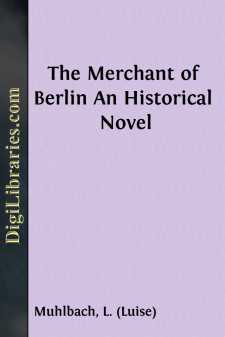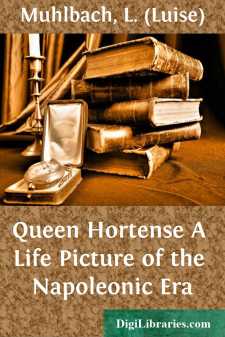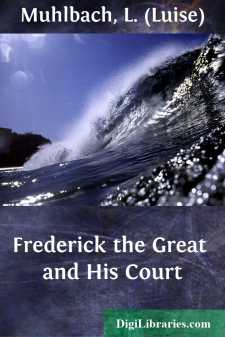Categories
- Antiques & Collectibles 13
- Architecture 36
- Art 48
- Bibles 22
- Biography & Autobiography 813
- Body, Mind & Spirit 142
- Business & Economics 28
- Children's Books 15
- Children's Fiction 12
- Computers 4
- Cooking 94
- Crafts & Hobbies 4
- Drama 346
- Education 46
- Family & Relationships 57
- Fiction 11828
- Games 19
- Gardening 17
- Health & Fitness 34
- History 1377
- House & Home 1
- Humor 147
- Juvenile Fiction 1873
- Juvenile Nonfiction 202
- Language Arts & Disciplines 88
- Law 16
- Literary Collections 686
- Literary Criticism 179
- Mathematics 13
- Medical 41
- Music 40
- Nature 179
- Non-Classifiable 1768
- Performing Arts 7
- Periodicals 1453
- Philosophy 64
- Photography 2
- Poetry 896
- Political Science 203
- Psychology 42
- Reference 154
- Religion 513
- Science 126
- Self-Help 84
- Social Science 81
- Sports & Recreation 34
- Study Aids 3
- Technology & Engineering 59
- Transportation 23
- Travel 463
- True Crime 29
The Merchant of Berlin An Historical Novel
Description:
Excerpt
CHAPTER I.
THE FESTIVAL.
The sufferings of the long war still continued; still stood Frederick the Great with his army in the field; the tremendous struggle between Prussia and Austria was yet undecided, and Silesia was still the apple of discord for which Maria Theresa and Frederick II. had been striving for years, and for which, in so many battles, the blood of German brothers had been spilt.
Everywhere joy seemed extinguished; the light jest was hushed; each one looked silently into the future, and none could tell in whose favor this great contest would finally be decided, whether Austria or Prussia would be victorious.
The year 1760, the fifth of the war, was particularly sad for Prussia; it was marked in the history of Germany with tears and blood. Even Berlin which, up to that time, had suffered but little from the unhappy calamities of war, assumed now an earnest, mournful aspect, and it seemed as if the bright humor and sarcastic wit which had always characterized the inhabitants of this good city had now entirely deserted them. Going through the wide and almost empty streets there were to be met only sad countenances, women clothed in black who mourned their husbands or sons fallen in one of the many battles of this war, or mothers who were looking with anxiety into the future and thinking of their distant sons who had gone to the army.
Here and there was seen some wounded soldier wearily dragging himself along the street, but hearty, healthy men were seldom to be met, and still more seldom was seen the fresh countenance of youth.
Berlin had been obliged to send not only her men and youths, but also her boys of fourteen years to the army, which, according to the confession of Frederick the Great, consisted, in the campaign of the year 1760, only of renegades, marauders, and beardless boys.
For these reasons it seemed the more strange to hear at this time issuing from one of the largest and handsomest houses on the Leipsic Street the unwonted sounds of merry dance-music, cheerful singing and shouting, which reached the street.
The passers-by stopped and looked with curiosity up to the windows, at which could be seen occasionally a flushed joyous man's face or pretty woman's head. But the men who were visible through the panes evidently did not belong to the genteeler classes of society; their faces were sunburnt, their hair hung down carelessly and unpowdered upon the coarse and unfashionable cloth coat, and the attire of the maidens had little in common with the elegance and fashion of the day.
"The rich Gotzkowsky gives a great feast to his workmen to-day," remarked the people in the street to one another; and as they passed on they envied with a sigh those who were able at the same time to enjoy a merry day in the rich and brilliant halls of the great manufacturer, and admire the splendor of the rich man's house.
The mansion of Gotzkowsky was indeed one of the handsomest and most magnificent in all Berlin, and its owner was one of the richest men of this city, then, despite the war, so wealthy and thriving....








